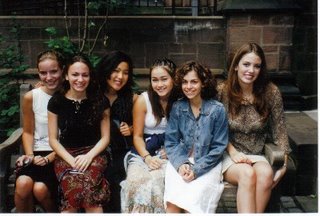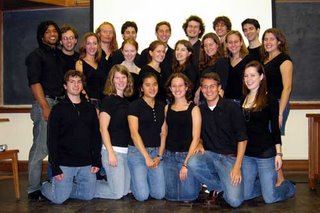A future worth voting for
One paragraph, in particular, embodies my feelings about how America should conduct itself in the wider world. It's a call for modesty and level-headedness that I hope--against all the odds--the Democrats will capitalize on, and American voters will support, in the coming elections. (You might remember an earlier post, The Potential for Greatness, discussing a similar sentiment.)
Americans may fight evil...but that does not make us inherently good. And paradoxically, that very recognition makes national greatness possible. Knowing that we, too, can be corrupted by power, we seek the constraints that empires refuse. And knowing that democracy is something we pursue rather than something we embody, we advance it not merely by exhorting others but by battling the evil in ourselves. The irony of American exceptionalism is that by acknowledging our common fallibility, we inspire the world.You may not want to believe this, but while I was studying abroad in Beijing, one of the info packets distributed to the students suggested that American students err on the side of caution by introducing themselves as Canadian. They weren't kidding, either. The backlash against America's "imperialist" policies was that intense, despite the many thousands of miles separating Iraq from China.
A future in which we can go abroad and proudly to tell people we're American--now that's a future worth voting for, don't you think?
















 Gear for Your Kitchen
Gear for Your Kitchen 







